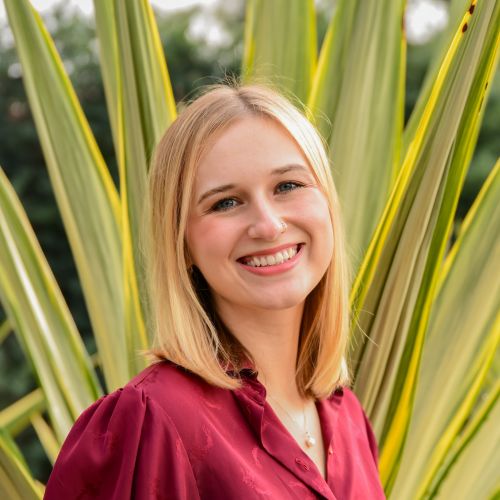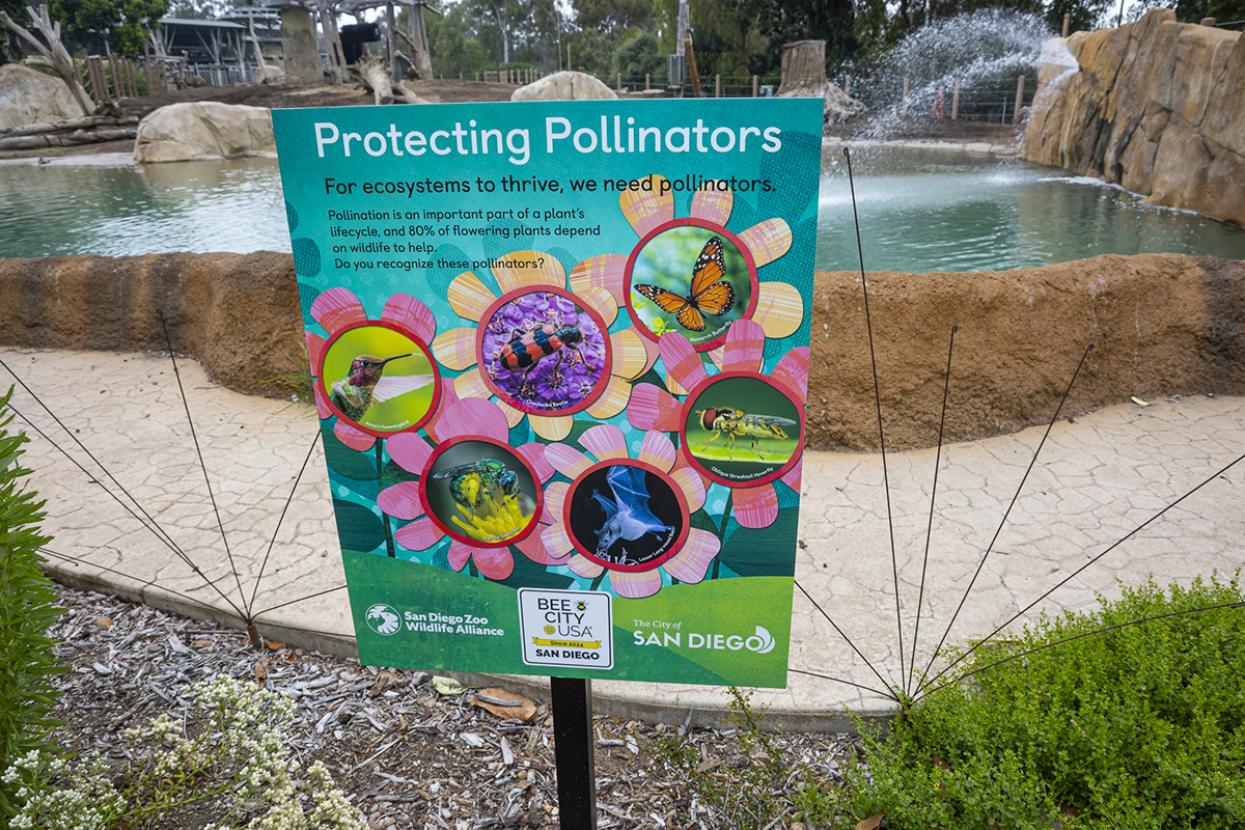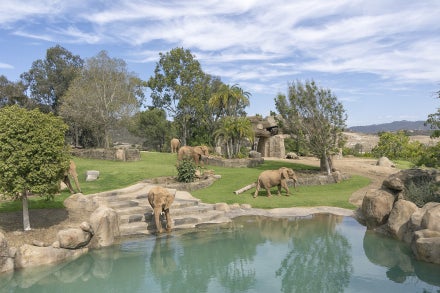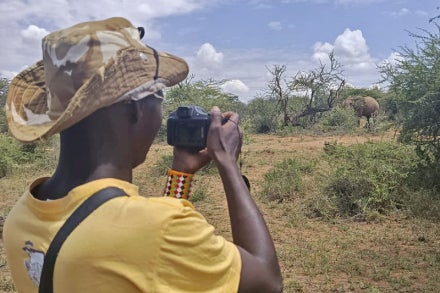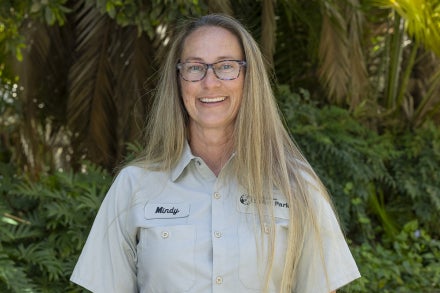
The next time you bite into a juicy apple, eat a cracker, put together a peanut butter and jelly sandwich, or sprinkle fresh berries over your breakfast, take a moment to thank a pollinator. Pollination is essential for most of the world’s flowering plant species and crops, including many food sources that we depend on. It’s estimated that these hardworking busybodies of the natural world affect one out of every three bites you eat!
So here in San Diego, we’re rolling out the red carpet for some of the planet’s VIPS: very important pollinators. These little heroes are getting the spotlight they so rightly deserve through Bee City USA, an initiative focused on conserving native pollinators by thinking globally and acting locally. It’s led by the Xerces Society for Invertebrate Conservation. We’re proud to share that the San Diego Zoo is now a Bee City USA affiliate as part of a city-wide initiative to secure the future for this vital wildlife that we all depend on.
Buzz-Worthy Abilities
The soft, rhythmic humming of bees as they dance between bright and fragrant flowers is a familiar sound. But it’s far more than just background noise. It’s the melody of nature thriving. While all pollinators may not be as well-known or make quite the same noises as bees, they’re equally as important to protect. Lively hummingbirds, graceful butterflies, dynamic beetles, in addition to surprising species such as bats, mice, and mosquitos, play a crucial role in sustaining balanced ecosystems.
Unfortunately, even with their VIP status, pollinators face a range of threats, including habitat loss, pesticide exposure, and environmental instability. As human populations grow, less space remains for native wildlife to thrive. Naturally overgrown spaces that are home to wildflowers, weeds, and nesting sites are disappearing in favor of manicured lawns and urban development that eliminate key nectar and pollen sources and encourage pesticide use.
Pollinators lay the foundation for healthy ecosystems. Over millions of years, plants and animals have coevolved to form mutually beneficial relationships. As they eat and go about their business, pollinators help plants grow and reproduce. And when plants thrive, ecosystems flourish as entire food webs receive the resources they need to survive. Without pollinators, this delicate balance begins to crumble, initiating a chain reaction of ecological consequences. The good news is that, through committed conservation efforts and the help of allies like you, there’s hope for pollinators.

Pollinators and plants have coevolved over millions of years to form mutually beneficial relationships.
Raising Our Voices
As a conservation organization and now a Bee City USA partner, we’re taking measures to protect these VIPs, starting right here in the Southwest where we’re headquartered. At the San Diego Zoo and San Diego Zoo Safari Park, we plant native flora in order to provide year-round food sources for bees and other pollinators while reducing pesticide use. Our teams also work tirelessly to foster awareness about these vital species and pollinator-friendly practices to protect them. We connect with guests on-grounds as well as with future generations of conservationists through hands-on education programs, including the Native Biodiversity Corps which helps local students plant native pollinator gardens on their campuses. Maintaining these efforts while collaborating with Bee City USA strengthens our local ecosystems by helping pollinators thrive while cultivating a community effort to ensure they remain part of our environment for generations to come.
When we prioritize the well-being of pollinators, we create a ripple effect that inspires action. Do you want to know the best part? Everyone can help local species! By making small changes such as avoiding pesticides, growing native nectar-providing plants, and transforming your garden or outdoor spaces with regionally appropriate native habitat for wildlife, you’re giving pollinators a chance.
Next time you buzz around the Zoo, keep your antennae out for areas where native plants and pollinators are flourishing. Pause to spot which pollinators are fluttering around and know that with every visit, you’re making a powerful difference for them worldwide!
Explore more how allies like you are helping protect wildlife here in San Diego and across the globe through our eight Conservation Hubs.

